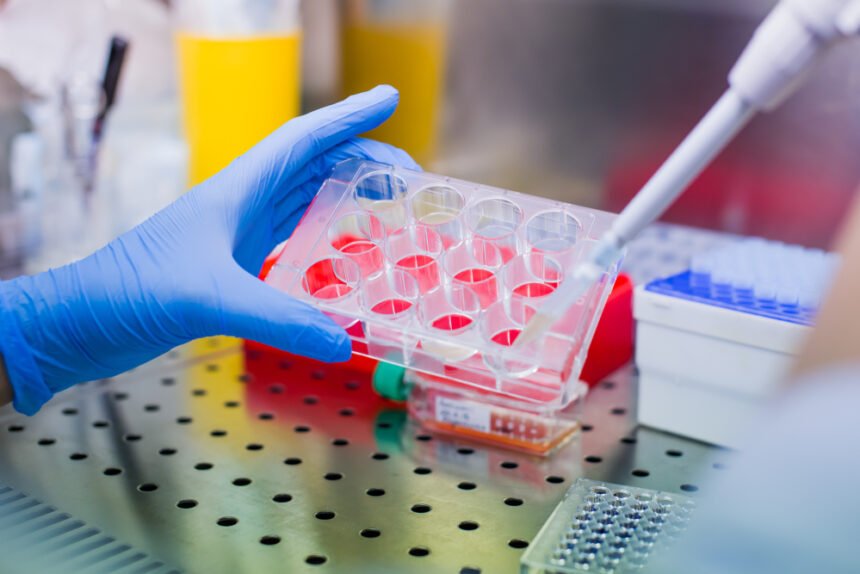As we enter a new era of medical advancements, several new techniques in medicine have been pioneered. You may have heard of stem cell therapy on the news introduced as the new wonder therapy – it’s effectively endorsed by celebrities and injured superstar athletes.
Stem cell therapy, also known as cellular therapy, has made the rounds as a groundbreaking anti-aging treatment and as a non-invasive solution to orthopedic problems. Cellular therapy helps regenerate a person’s body by allowing itself to repair naturally. Cellular therapy appears to aid in the regeneration of injured cartilage tissue, tendons, bones, muscles, ligaments, and vertebral annular discs.
How does stem cell therapy work?
Stem cell therapy works by stimulating the body to repair and replace tissue that has broken down over time or has been traumatized from injury or overuse.
To do this, a patient’s stem cells found in both bone marrow and adipose (fat) tissue need to be harvested first. Next, the doctors concentrate the cells into a small injectable volume that can be reintroduced into the area of concern.
Stem cells find the damaged tissue and appear to initiate the repair and regeneration processes. From that point, your body’s own natural healing processes complete the task.
There are a number of types of cellular therapies available now. One of the variants is Adipose-derived stem cell therapy.
What are Adipose-Derived Stem Cells?
Adipose-derived stem cells (ADSCs) were first described in the scientific literature in 2001 (https://doi.org/10.1089/107632701300062859). ADSCs, also known as a Stromal Vascular Fraction (SVF), are adult stem cells isolated from fat tissue that is harvested during a mini-liposuction. ADSCs have been used to promote tissue regeneration. Published reports in the scientific literature indicate the potential to use ADSC’s for a variety of conditions including: orthopedic, neurologic, pulmonary and autoimmune conditions (DOI:10.24966/SRDT-2060/100011).
Adipose-derived stem cells (https://www.futuremedicine.com/doi/full/10.2217/rme-2018-0053) have been demonstrated to have superior numbers and in some cases superior healing capacity when compared to bone marrow. Aside from their abundance, they are also more accessible. In most patients, subcutaneous fat is readily available. ADSC can then be isolated in therapeutically relevant amounts in a matter of hours by tissue processing and centrifugation, which eliminates the need for cell culture.
Adipose-derived stem cells have been used in a wide variety of medical conditions.
They have been evaluated for the treatment of:
- Neurologic disorders.
- Autoimmune skin diseases.
- Inflammatory bowel diseases.
- Cardiovascular diseases.
- Orthopedic pathologies and joint diseases.
- Urinary and erectile dysfunction.
- Regenerative wound healing and wound closure.
Adipose Derived Stem Cells vs. Bone Marrow – Which has more advantages?
There are two primary sources of stem cells in the body – bone marrow and adipose or fat tissues. Previously, bone marrow was the only regarded significant source of stem cells. It wasn’t until recently that adipose-derived stem cells (ADSCs) gained traction.
Both sources provide additional growth and healing factors beyond just being a source for stem cells. However, research suggests that in certain conditions stem cells derived from adipose fat tissue may serve as a better source for cellular therapy.
When it comes to abundance, fat tissues significantly overshadows bone marrow. ADSCs have been shown to have significantly higher numbers of cells per unit volume when compared to bone marrow.
Availability is a prime logistical advantage with Adipose-derived stem cells. Many consider removing excess fat from under the skin via a mini-liposuction procedure as less invasive than a bone marrow aspiration procedure.
ADSCs numbers do not appear to diminish with age as much as bone marrow derived stem cell numbers. This means that when a person becomes older, they will have a lower number of stem cells available in bone marrow. Adipose derived cells seem to be spared this decline in numbers. It is also believed, by some, that chronic illness which are common with advanced age may accelerate the decrease in bone marrow stem cell numbers and potency.
Interestingly, stem cells harvested from adipose tissue appear to be more potent than those acquired via bone marrow which helps in activating the body’s immune system.
Measurements comparing bone marrow to adipose tissue for stem cell harvesting demonstrate that adipose-derived stem cells provided higher cell content. It is important to keep in mind that no two people are identical and a discussion with an appropriately trained medical provider is required to see if bone marrow or adipose may be a better cellular therapy option for you.
What’s the Controversy with Adipose-Derived Stem Cells?
There are FDA considerations here. The FDA has stated that it considers ADSCs a drug and therefore ADSCs should be regulated as a drug. This issue is currently being litigated because proponents of ADSC therapy advocate that a person’s own cells are not a drug and should not be considered as such. Recently, there has been a Federal Court level finding against the FDA’s position. This litigation is ongoing and may take months or year to resolve.
There is also a safety issue in the acquisition of any cellular therapy including adipose-derived stem cells. Not all labs and clinics are equal. Currently, all ADSC procedures should be performed in the setting of a research study with appropriate Institutional Review Board oversight by qualified and appropriately trained medical professionals. So vigilance in the selection of an qualified clinic/practitioner is of utmost importance.
With the increase demand for regenerative treatments, it seems reasonable that ADSC should be a part of the conversation.
A Promising Future
Stem cell research in general now seems to hold the key to future progressive treatments as they are able to map out how diseases function and react at a cellular level. There is a bright future ahead for adipose-derived stem cell therapy and the field of regenerative medicine as it brings hope for many people suffering from chronic degenerative illnesses.







